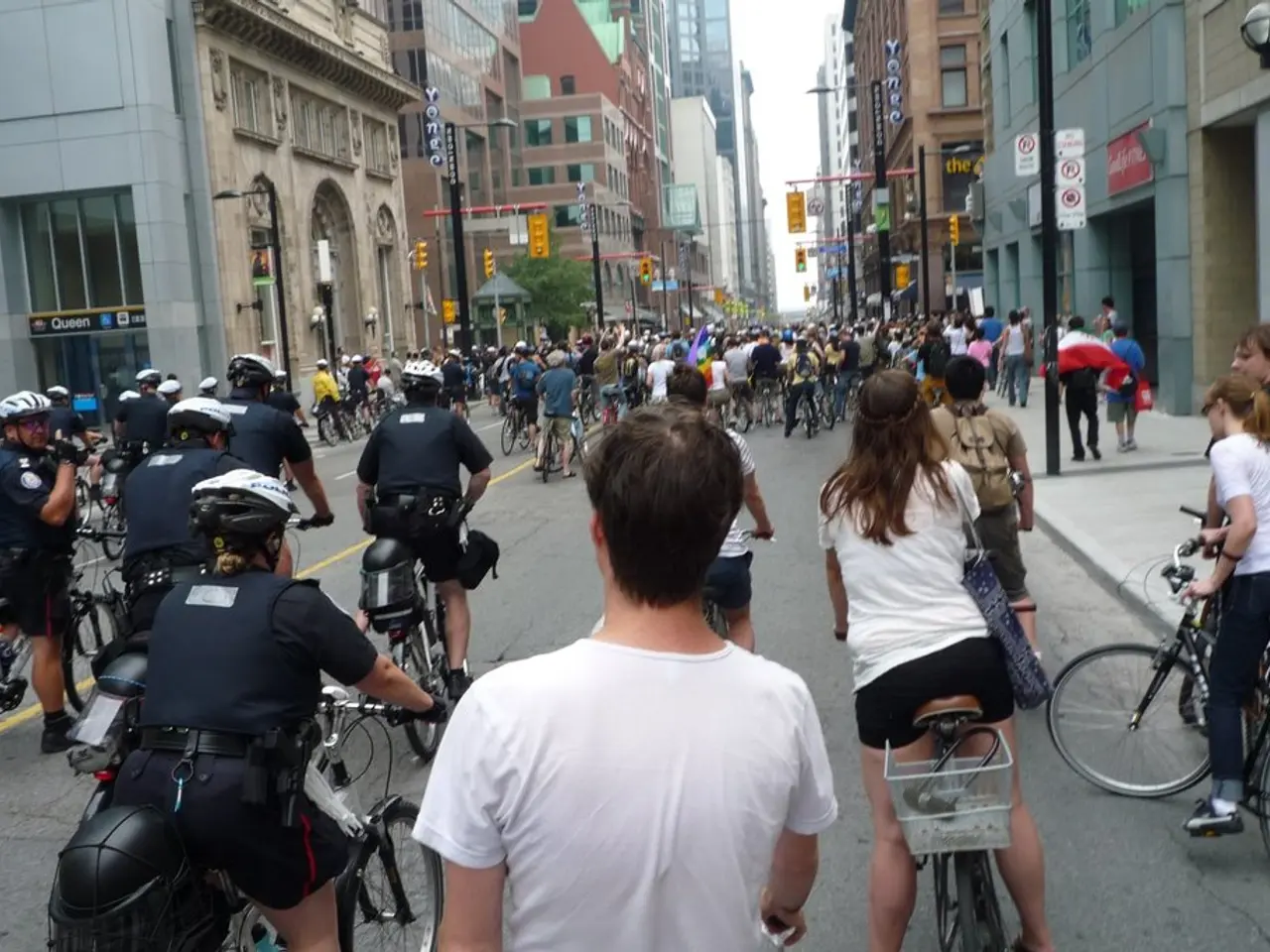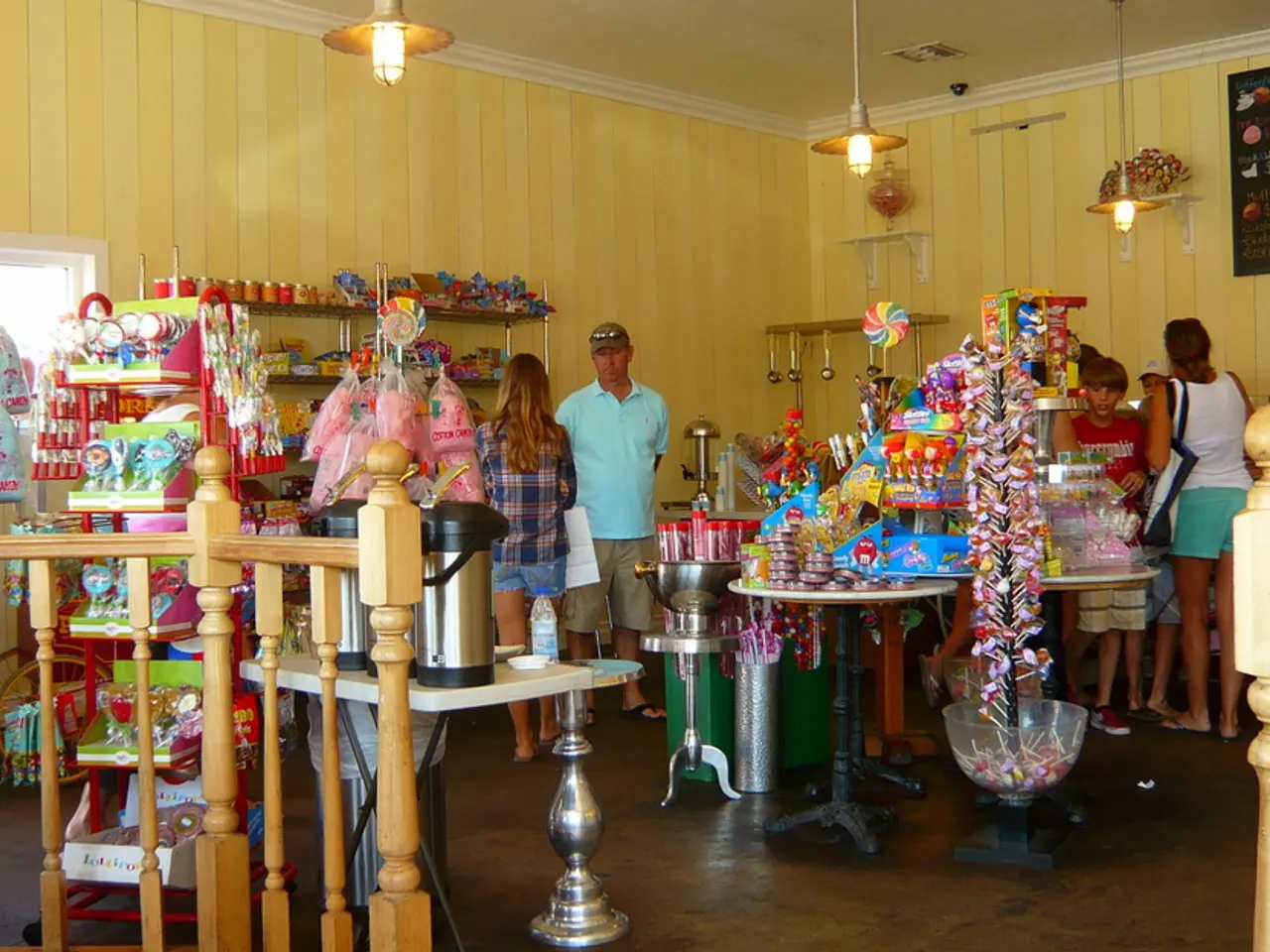Report Data: Supplied for Reference
In the heart of Germany, the city of Düsseldorf has found itself under the spotlight, with the Allgemeiner Deutscher Fahrrad-Club (ADFC) critiquing its bike infrastructure in a recent climate test. The test results, however, remain undisclosed.
The focus of the ADFC's concerns lies primarily in the city's bike routes, with a particular emphasis on the beautiful bike streets in Grafenberg. The cycling advocacy group has made ten demands, one of which is the construction of 40 kilometers of the main cycling network each year, and the provision of 2,000 new bike parking spaces annually.
The city's activities in promoting cycling, as perceived by the ADFC, require a 'political peak'. The group has demanded a consistent separation of car, bike, and pedestrian traffic, suggesting a need for more proactive measures from political leaders. However, it remains unclear if these demands are annual targets or part of a long-term plan.
Last year, the city's activities in regards to bike paths were largely limited to repairs. The ADFC has not specified the timeline for the implementation of these demands or if they are negotiable. Furthermore, it is unclear if the city has previously received similar demands or if this is the first time such criticism has been made.
Mayor Stephan Keller could potentially interpret a quote from the ADFC as criticism, as it suggests a need for consistent promotion of cycling from political leaders. The article does not mention any new demands or goals set by the ADFC in this paragraph.
For the most accurate and up-to-date information on Düsseldorf’s cycling infrastructure projects, it would be advisable to consult official Düsseldorf city resources or recent ADFC Düsseldorf press releases. The ADFC has not provided details on the consequences if the city fails to meet these demands. The article does not provide any consequences if the city fails to improve its bike infrastructure.
As the city strives to improve its cycling infrastructure, it will be interesting to see how it addresses the ADFC's demands and works towards creating a more bike-friendly Düsseldorf.
The ADFC has highlighted the need for the construction of 40 kilometers of the main cycling network each year and the provision of 2,000 new bike parking spaces annually in their demands to the city, with these goals potentially affecting the local industries such as finance and transportation. The cycling advocacy group also emphasizes the importance of clear separation of bike, car, and pedestrian traffic and more proactive measures from political leaders, aligning these demands with the broader issues related to urban planning and infrastructure development in transportation and finance sectors.




